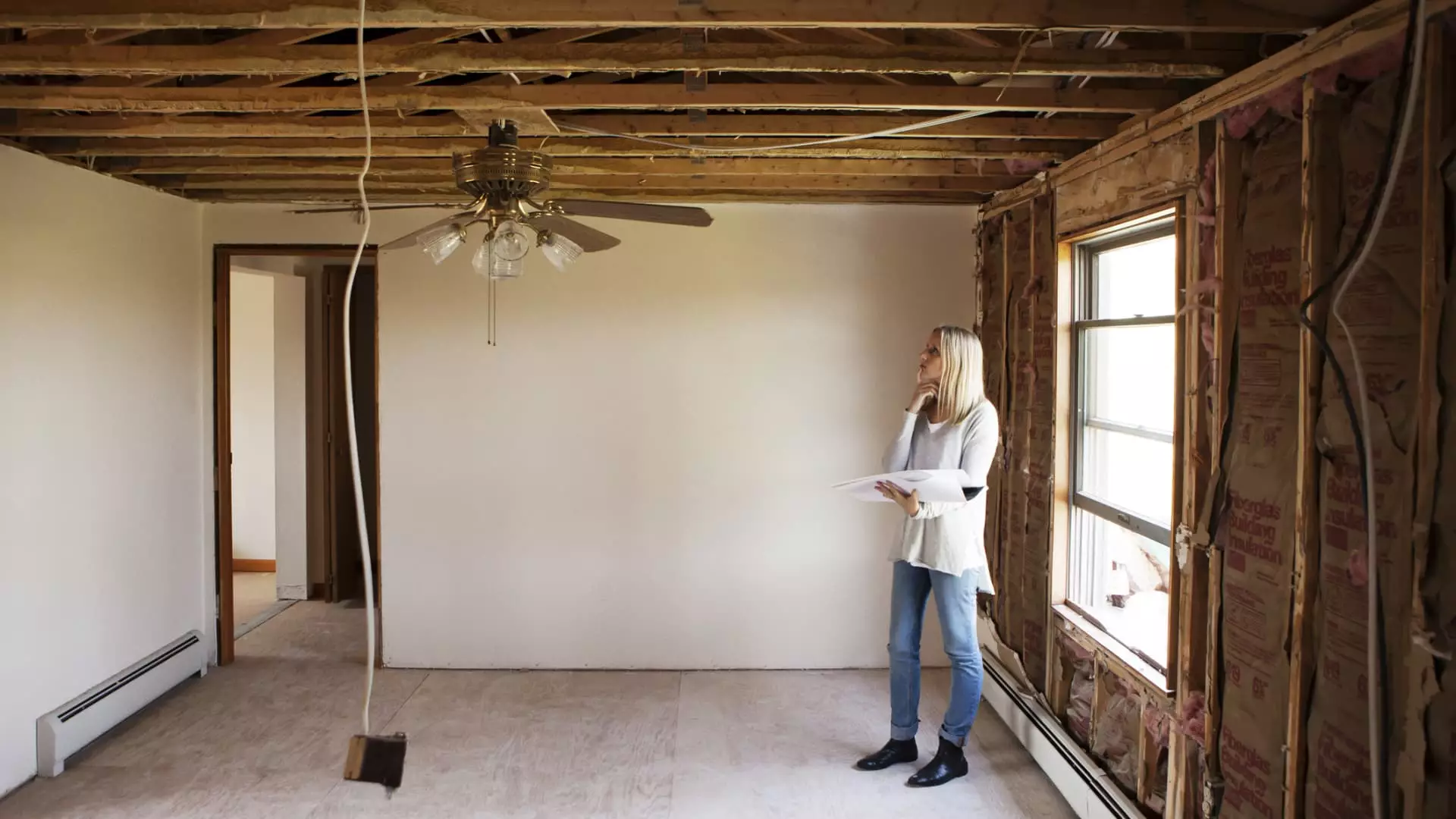A recent report has highlighted the challenges that Gen Z homebuyers face in the current housing market. Approximately 22% of Gen Zers identify a lack of affordable starter homes as a significant barrier to homeownership. This has led many young buyers to consider fixer-upper homes as a potential solution. These properties, which require varying degrees of maintenance work, are often offered at a lower purchase price, making them more accessible to first-time buyers.
Despite the initial appeal of fixer-upper homes, the report also reveals that a significant number of Gen Z homeowners who purchased such properties ended up regretting their decision. About 27% of Gen Z homeowners who bought fixer-uppers expressed regret, indicating that the reality of homeownership and renovation costs may have been more challenging than anticipated. This underscores the importance of thorough research and planning before investing in a fixer-upper property.
While purchasing a fixer-upper home may offer short-term savings compared to move-in ready properties, buyers need to consider the long-term costs associated with renovations and repairs. It is essential to evaluate the functionality of the home and the potential costs of bringing it up to standard. Functionality should be a top priority when considering a fixer-upper, as issues such as a lack of usable bathrooms can significantly impact the timeline and cost of renovations.
Some Gen Z buyers are willing to take on fixer-uppers with significant disrepairs or outdated features, including hazards like asbestos. However, it is crucial to assess the risks involved in purchasing a property with potential health and safety issues. Buyers should prioritize safety inspections and ensure that the home is livable before making a purchase. Additionally, the age and condition of the home should be carefully considered, as older properties may require extensive repairs and maintenance.
Before purchasing a fixer-upper home, buyers should ask thorough questions about the property, including its age and condition. During the home inspection process, it is essential to identify potential issues that may require costly repairs. Key areas to pay attention to include the roof, plumbing, electricity, walls and stairs, and overall land. Understanding the condition of these components can help buyers make informed decisions and avoid unexpected expenses down the line.
Buying a fixer-upper home can be an attractive option for Gen Z homebuyers looking to enter the housing market at a more affordable price point. However, it is crucial to weigh the short-term savings against the long-term costs of renovations and repairs. Thorough research, careful planning, and a realistic assessment of the property’s condition are essential steps for ensuring a successful fixer-upper purchase. By addressing potential challenges and understanding the risks involved, buyers can make informed decisions and turn a fixer-upper property into their dream home.

Leave a Reply